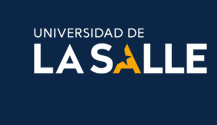Title
Logic and Imaginaries of the Ecological Crisis: The Support of the Interaction between Society and Nature
Resumen
La crisis ecológica, como una faceta de la crisis de civilización por la que transita la humanidad, no es una premonición, sino un hecho que se ha venido agudizando con los años; pero, ¿cómo llegamos a esta realidad? En este documento se discute y argumenta a favor de la idea de que la racionalidad social contra natura y los imaginarios de modernidad han dado el apoyo para el sacrificio de la naturaleza y el ser humano, lo que ha conformado una verdadera ideología de dominación que ha puesto en peligro la vida en general. ¿Existirá alguna alternativa?, al respecto, se intenta contribuir al debate teórico que sugiere como necesaria la construcción de otra racionalidad, que esté respaldada en una ética del reconocimiento y cuidado del otro, donde este otro incluya la naturaleza. Dicha racionalidad tendrá que surgir de un lugar diferente de donde emergió el problema, y se concluye que una opción plausible son los imaginarios ya existentes en algunas comunidades de carácter indígena o campesino, principalmente, pero también las periurbanas, que con su doble función preservadora y destructora pueden dar pie a la construcción de utopías posibles, como posible ha sido su existencia a lo largo de los años.
Palabras clave
racionalidad instrumental, racionalidad ambiental, ética ambiental, periurbano
Abstract
The ecological crisis, as a part of the crisis of civilization currently being experienced by humanity, is not a premonition but a fact that has intensified over the years; how did we get to this situation, though? This paper discusses and supports the idea that the contra natura social logic and the imaginaries of modernity have supported the sacrifice of nature and human beings, which has formed a true ideology of domination that has endangered life in general. Is there an alternative? In this respect, we seek to contribute to the theoretical debate that suggests the need to build another logic supported by the ethics of recognition and the care of others, in which said ‘others’ include nature. Such logic must come from somewhere different from where the problem first arose, and it is concluded that a plausible option would be the already existing imaginaries (mostly in certain indigenous or rural communities, but also in some peri-urban communities) that, with their double preserving-destructive role, can give rise to the construction of possible utopias, in the same way that its existence has been possible over the years.
Keywords
Instrumental rationality, environmental rationality, environmental ethics, peri-urban
Fecha de recepción
4 de abril de 2014
Fecha de aceptación
19 de junio de 2014
Fecha de publicación
2014-06-01
Licencia Creative Commons

This work is licensed under a Creative Commons Attribution-Noncommercial-No Derivative Works 4.0 License.
Tipo de documento
Artículo de investigación
Editorial
Universidad de La Salle. Ediciones Unisalle
Citación recomendada
Navarro Hinojoza, Ernesto
(2014)
"Racionalidad e imaginarios de la crisis ecológica: sustento de la interacción sociedadnaturaleza,"
Traza:
No.
9
, Article 2.
Disponible en:


